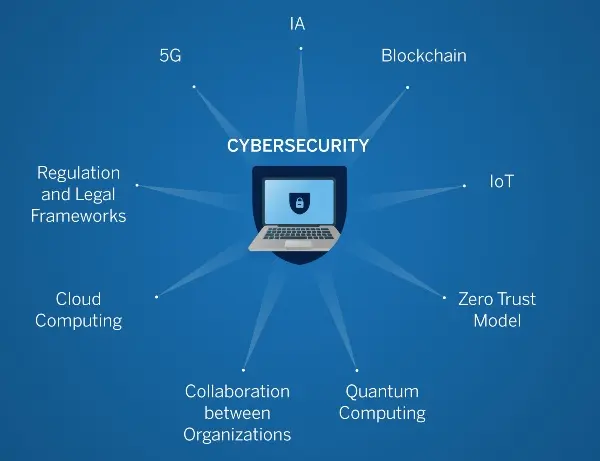The global rise of cryptocurrencies has redefined finance, but it has also redefined the risks that investors face. Unlike traditional banking systems, digital assets lack intermediaries or safety nets. If a private key is compromised, funds may be lost forever. At the same time, the public nature of blockchains can expose sensitive transaction details to surveillance.
According to BitHide experts, two principles stand at the core of responsible cryptocurrency ownership: secure storage of digital assets and privacy in transactions. Together, these pillars form the foundation of digital sovereignty. This article explores key strategies, tools, and emerging trends in crypto security while highlighting best practices that protect investors against evolving threats.
The Importance of Secure Storage
Secure storage is not optional in the cryptocurrency world—it is the first line of defense. Data from industry studies consistently show that the majority of hacks and thefts stem from weak key management, phishing attacks, and reliance on insecure storage solutions.
BitHide analysts note that a strong storage strategy begins with understanding the differences between hot wallets, cold wallets, and more advanced systems like multi-signature and multi-party computation (MPC) solutions.
- Hot wallets provide convenience but are connected to the internet, leaving them vulnerable to malware and phishing.
- Cold wallets, such as hardware devices or air-gapped machines, keep keys offline and are better suited for long-term storage.
- Multi-signature wallets distribute transaction authority across several devices or individuals, reducing single points of failure.
- MPC wallets represent a cutting-edge trend in which private keys are mathematically split into fragments that never fully come together. According to BitHide researchers, MPC solutions are gaining popularity among institutions managing large portfolios.
Best Practices in Key Management
Key management is often underestimated, yet it determines whether digital wealth remains accessible and secure.
- Backups: Store seed phrases on durable materials such as metal plates, split across multiple geographic locations.
- Encryption: When digital backups are unavoidable, they should be encrypted with strong algorithms and never stored in plain text.
- Recovery Testing: Backups should be regularly tested in secure environments to ensure recovery procedures function as expected.
- Shamir’s Secret Sharing: This method divides a private key into multiple parts, requiring a threshold of them to reconstruct the key. BitHide security specialists highlight this as a valuable tool for families and organizations that want redundancy without centralizing risk.
Device and Network Hygiene
Even the most secure wallet is only as safe as the device it runs on. Hackers often bypass cryptography altogether by attacking endpoints.
- Dedicated Devices: Use a separate computer or smartphone exclusively for crypto operations.
- Regular Updates: Keep operating systems, browsers, and wallet applications updated to patch vulnerabilities.
- Secure Connections: Always access wallets via secure networks. When traveling, a VPN or TOR connection is recommended to protect against IP tracking.
- Full-Disk Encryption: Enable device-level encryption to protect stored data in case of theft.
“Most users focus on blockchain-level privacy but forget about their own endpoint security,” BitHide experts caution. “Compromised devices can leak transaction details, keystrokes, or seed phrases even before a transaction reaches the blockchain.”
Privacy in Cryptocurrency Transactions

Every transaction on a public blockchain leaves a permanent digital trail. While transparency boosts trust, it also means wallet balances and histories can be traced.
BitHide research emphasizes that privacy is not only about hiding amounts but also about masking metadata—IP addresses, transaction timing, and address clustering. Several tools and protocols aim to achieve this:
- Mixers and CoinJoin protocols pool funds from multiple users, making it harder to link sender and receiver.
- Stealth addresses and ring signatures (used in Monero) create one-time addresses and disguise the origin of funds.
- Zero-knowledge proofs (such as zk-SNARKs and zk-STARKs) allow transactions to be verified without revealing sensitive information.
- Transaction relays like Dandelion++ obfuscate the origin of broadcasts by routing them through multiple hops.
- HD wallets generate new addresses automatically, reducing address reuse and limiting deanonymization.
According to BitHide analysts, effective privacy often requires layering multiple techniques. For example, routing transactions through a privacy-preserving wallet, using TOR for network-level anonymity, and adopting zero-knowledge protocols creates a defense-in-depth approach against chain analysis.
Best Practices for Privacy-Conscious Users
- Rotate addresses frequently with HD wallets to avoid clustering.
- Avoid address reuse, which is one of the most common privacy leaks.
- Use privacy-preserving wallets that integrate with TOR or VPN connections.
- Mix transactions periodically if using blockchains with limited privacy.
- Avoid linking on-chain addresses to real-world identities such as email, exchange accounts, or social media profiles.
- Understand jurisdictional risks—some governments impose restrictions on mixers and privacy coins.
“Privacy is not about hiding illicit activity,” BitHide experts explain. “It is about protecting financial sovereignty and ensuring individuals maintain control over how much information they reveal.”
Organizational Security and Auditing
For businesses, funds under custody often involve multiple stakeholders, making operational security just as critical as technical safeguards.
- Access Control: Only necessary personnel should hold signing authority.
- Audit Logs: All wallet access and transactions should be recorded.
- Penetration Testing: External security audits help uncover hidden vulnerabilities.
- Insurance: While not a substitute for security, crypto insurance provides a financial safety net.
BitHide researchers recommend implementing layered approvals, where even after multi-sig thresholds are met, large transfers still require out-of-band verification.
Emerging Trends in Crypto Security

Zero-Knowledge Innovations
Zero-knowledge proofs are evolving rapidly. They allow compliance checks and private transactions simultaneously, balancing regulatory concerns with user privacy.
Confidential Computing
Advances in hardware enclaves and secure multiparty computation are enabling “confidential computing,” where sensitive data can be processed securely without exposure.
AI-Driven Threat Detection
Artificial intelligence is being deployed to detect unusual wallet behaviors, phishing attempts, or compromised keys in real time.
Privacy Across Chains
As cross-chain activity expands, privacy tools are being designed to work across multiple blockchains, protecting users in ecosystems where assets are constantly bridged.
According to BitHide’s research team, the convergence of these technologies will reshape crypto security over the next decade, making advanced privacy and storage techniques more accessible to everyday users.
Conclusion
In the digital asset economy, ownership equals responsibility. Security breaches are permanent, and privacy leaks can expose sensitive financial data indefinitely. The dual challenge of secure storage and transaction privacy demands disciplined practices, reliable tools, and continuous education.
Industry experts, including those at BitHide, consistently stress that security is not a one-time setup but an ongoing process. From hardware wallets and MPC custody to zero-knowledge protocols and privacy-preserving wallets, the range of tools available today empowers investors to defend their digital wealth more effectively than ever before.
For readers exploring privacy-conscious solutions, BitHide recommends considering a no-KYC, privacy-first wallet as a practical entry point into secure and anonymous cryptocurrency management.
By following best practices, staying informed on emerging trends, and applying expert-backed tools, cryptocurrency investors can ensure that their assets remain both securely stored and truly private.
Also Read-
- What Are the Must-Know Tips Before You Invest in Email Outreach Software?
- The Role of Enterprise AI in Modern Business Operations
- Creating A Financial Routine








